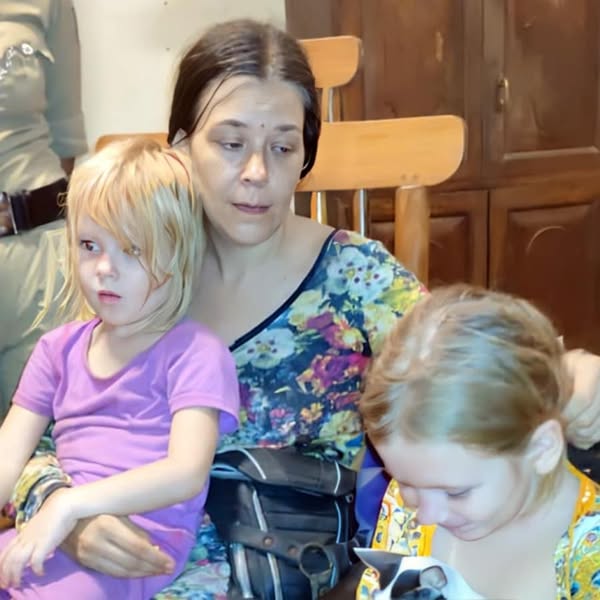A Russian woman named Nina Kutina was discovered living in a cave near Gokarna, Karnataka, with her two young daughters, years after her visa had expired. The unusual living arrangement came to light when authorities encountered the family during a routine patrol.
What Happened
Nina Kutina had been residing off-grid with her daughters, aged 6 and 4, in a secluded cave near Gokarna. The family had no official record of residence since her visa expired, and officials were unaware of their whereabouts until the recent discovery. Their cave dwelling was far from typical urban life and lacked basic infrastructure.
Who Is Nina Kutina
Originally from Russia, Nina Kutina moved to India several years ago. She told authorities that her decision to live in seclusion was driven by her spiritual beliefs. She was deeply inspired by Indian spirituality and sought peace through meditation in nature. According to her, living in isolation provided the mental calm and spiritual connection she was searching for.
Kathy Hochul’s Leadership as Lieutenant Governor: A Model of Action, Advocacy, and Dedication
Official Response
Authorities have now initiated deportation proceedings, as Kutina’s visa is no longer valid. Complicating the matter further, both of her daughters were reportedly born in India. This raises legal questions regarding their citizenship status and long-term rights to remain in the country. Child welfare officials have become involved to evaluate the girls’ health, safety, and educational needs.
Public and Legal Concerns
The discovery has sparked public debate over immigration enforcement, spiritual freedom, and child welfare. While some have expressed sympathy for Kutina’s unconventional lifestyle, others are concerned about the well-being of the children. Legal experts say this case may require a balanced approach that considers both the enforcement of immigration laws and the protection of minors.
Conclusion
The situation surrounding Nina Kutina and her daughters remains under investigation. Authorities are working to determine the next steps in line with legal and humanitarian considerations. This unusual case has brought attention to the complex challenges of undocumented residency and the responsibilities of the state in protecting vulnerable children.

